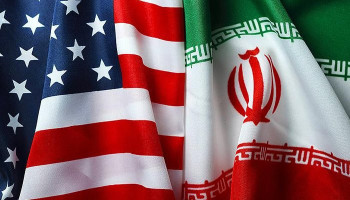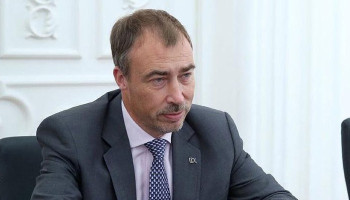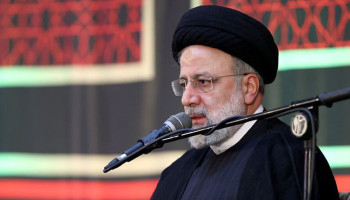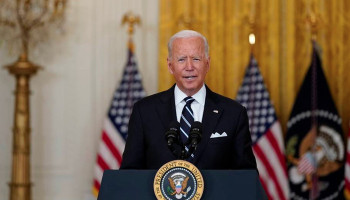For Hillary Clinton and Vladimir Putin, the Mistrust Is Mutual
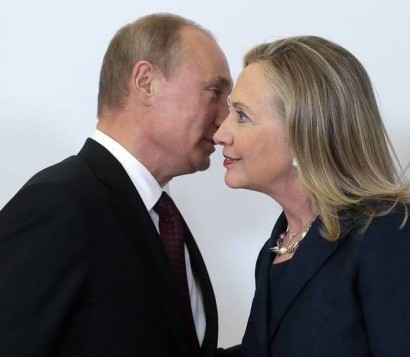 In Monday’s U.S. presidential debate, Hillary Clinton voiced her longstanding suspicion of Vladimir Putin, saying the Russian president is “playing a really tough, long game here.” For the Kremlin, the mistrust is mutual. While Mr. Putin has called Republican nominee Donald Trump a “colorful and talented person,” he has often described Mrs. Clinton, the Democratic nominee, in dismissive terms. Russian government insiders and former diplomats say the Kremlin sees Mrs. Clinton as openly pursuing a democratization agenda that it views as an existential threat. “Clinton is the embodiment of a very clear school of thought of liberal interventionism,” said Fyodor Lukyanov, head of the Council on Foreign and Defense Policy, which advises the Kremlin. “Russia sees this as a threat to its sovereignty.” That concern reflects a widely held view in the Kremlin. The Russian government has long been critical of pro-democratic revolutions, whether in the Middle East or neighboring Ukraine. Russian officials often accuse Washington of pursuing a policy of “regime change” that they say is directed at Moscow, with the U.S. both openly and covertly funding pro-democratic groups. Underpinning some of the animus against Mrs. Clinton is also a history of sharp personal interactions between the former secretary of state and top Russian leaders, insiders add. “She never liked to deal with Putin and [Russian Foreign Minister Sergei] Lavrov,” Mr. Lukyanov added. “I think the feeling is reciprocal.” The relationship contrasts with that of Mr. Trump, who has repeatedly praised Mr. Putin for being a “strong leader.” That has alarmed many in the West, including Republicans, and the GOP nominee had to clarify remarks he made in August that suggested Russia had no presence in Ukraine, even after an invasion by its forces and the annexation of Crimea in 2014. After security experts earlier this year blamed Russia for hacks of Democratic National Committee computer files, Mr. Trump said he hoped Moscow would find more of Mrs. Clinton’s emails from when she was secretary of state. Mrs. Clinton and others have said the hack raises serious issues about Russian interference in America’s coming election. At the State Department, one of Mrs. Clinton’s first tasks in 2009 was to pursue a “reset” of relations with Russia, then led by President Dmitry Medvedev. But that effort got off to a somewhat awkward start: Mrs. Clinton presented a button that read “overload” in Russian instead of “reset” to Mr. Lavrov. Despite the mistranslation, the pair both pressed the knob at a photo opportunity. But as her tenure as the top U.S. diplomat came to a close four years later, Mrs. Clinton wrote a private memo to President Barack Obama saying relations with Moscow had hit a low. That low point came after Mrs. Clinton publicly condemned Russian parliamentary elections in 2011, which were marred by allegations of widespread fraud. Tens of thousands took to Moscow’s streets in protests that posed the largest-ever popular challenge to Mr. Putin’s rule. Mrs. Clinton wrote in her 2014 autobiography that Mr. Putin “lashed out” at her for stoking dissent that Russia believes led to the protests. “I remember thinking this is going to make my life very difficult as I prepare to arrive as ambassador,” said Michael McFaul, former U.S. ambassador to Russia, who arrived several months before Mr. Putin resumed the presidency in May 2012. During Mrs. Clinton’s time in the cabinet, the term “GosDep,” a Russian acronym for the U.S. State Department, emerged as a negative buzzword akin to a political slur. But observers point to another reason for the Russian animus against the Democratic candidate: In the male-dominated world of Russian politics, a female U.S. president could be perceived as a threat. “The Russian approach is just nasty—it seems to reflect their view that we shouldn’t have put a woman in that position,” said Jeremy Shapiro, research director of the European Council on Foreign Relations and former member of the State Department’s policy planning staff.
“When the majority of those controlling the world are men, it will be hard for her,” said nationalist politician Vladimir Zhirinovsky in televised remarks in June. “How is she going to communicate with Arabs and Turks and those countries that don’t like women? She doesn’t even have the right to sit next to them.” Mrs. Clinton is also a figure of fun in Russian media, in contrast to flattering portrayals of Mr. Trump. Footage of Mrs. Clinton’s recent coughing on the campaign trail has been played on loop on Russian state television, and when Valentina Matviyenko, who as chair of the upper house of parliament is the most senior female politician in Russia, fell victim to a recent coughing fit on live television, she joked: “Hillary is not behind this.” |












